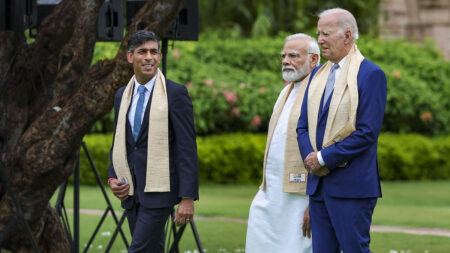A Texas regulation denying web-based entertainment goliaths from directing specific types of online discourse has been hindered by the US Supreme Court.
The regulation would have kept bigger tech organizations from prohibiting or controlling Texas clients for their perspectives.
Conservatives in the state said it was important to battle what they guaranteed was virtual entertainment’s liberal predisposition.
In any case, tech bunches contended that the law was an infringement of the privately owned businesses’ right to speak freely privileges.
In an uncommon 5-4 decision, the US’s top court settled on Tuesday to a solicitation upheld by tech goliaths to hinder the law from coming into force for a brief time.
Industry bunches suing against the regulation contended that it disregarded the option to free discourse, which incorporated the opportunity of privately owned businesses to choose what content to distribute on their foundation.
Without the capacity to direct their foundation, Silicon Valley campaigners asserted that the state regulation would have turned Facebook, Twitter and YouTube into “safe houses of the most disgusting articulation possible”.
Texas Governor Greg Abbott said the law kept Texans from “unjust oversight”
Texas Governor Greg Abbott, who marked the bill into regulation in September last year, said at the time that the inverse was valid – that the action was expected to forestall predisposition against moderate perspectives and safeguard free discourse.
Online entertainment organizations are “our advanced public square” where discussion ought to stream unreservedly, he contended. “There is a hazardous development by web-based entertainment organizations to quietness moderate perspectives and thoughts“.
The law expressed that web-based entertainment stages with beyond what 50 million clients couldn’t boycott individuals in light of their political perspectives.
Facebook, Twitter and Google’s YouTube all fell inside its degree.
On Tuesday, a far-fetched gathering of five Supreme Court judges – delegated by both Democratic and Republican presidents – united to impede the law from producing results while claims over its legitimateness proceed.
The larger part, who gave not a great reason to the crisis choice, included Justices John Roberts, Brett Kavanaugh, Amy Coney Barrett, Sonia Sotomayor and Stephen Breyer.
Their request follows a different decision by another government court last week which found a comparable regulation in Florida probably disregarded the option to free discourse cherished in the US Constitution.
In the beyond couple of months, various Republican-drove US states have blamed virtual entertainment organizations for being one-sided against moderate perspectives and have passed regulations endeavouring to oblige them.
The subject of how far free discourse stretches out via web-based entertainment stages – and whether endeavours by US states to enact against the organizations may themselves consider oversight – is probably going to be tried progressively in US courts before long.
Read More – The Hour Of Horror In The Texas Shooting












